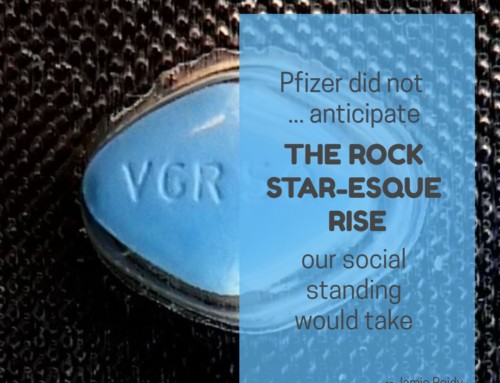Sometimes a writer doesn’t go looking for his next project. It comes looking for him.
This is what happened to Rod Dreher, a writer at The American Conservative. He received an anonymous phone call from a doctor whose news-watching parents, immigrants from Romania, followed the story of a pizza parlor in Indiana facing boycotts over a politically unpopular remark. Just like back home, the upset parents told their son. They were so persistent that he started to ask himself, Could totalitarianism happen here?
Dreher followed up, visited former Soviet-bloc states, conducted interviews, and found consensus among survivors of that era. Americans are hopelessly naive, they believe. Some of them refuse to use e-mail or own smartphones, which can too easily become tools of a surveillance state.
I’d find it hard to give up my e-mail and smartphone, but I don’t doubt their point.
Christians face particular risk in a totalitarian state, for reasons we’ll discuss below. But their stories of how they survived these dark years fill Dreher’s book, Live Not By Lies.
Slovakian Catholics were fortunate to have Father Kolakovic who, at the end of World War II, saw through the Soviets’ promises of freedom to neighboring states, in exchange for their cooperation. He labored to get his people ready for tough times ahead.
His advice: form small cells of people you can trust, with whom they can “[discuss the issues and challenges facing them as Christians.” These could be family groups, faith groups, but it had to be a place where members could “speak truthfully and embody truth.”
Because totalitarianism crushes truth.
We’ve got budding totalitarians in our midst in 2020. So what’s the appeal of it, anyway?
According to Dreher, the temptation of modernity is to reject God. It feels freer, the “liberation of human desire from limits.” You needn’t answer to anyone, needn’t acknowledge any “transcendent stories, structures, habits or beliefs to which individuals must submit.”
What remains is “an internal hunger, specifically the hunger for a just society, one that vindicates and liberates the historical victims of oppression. It masquerades as kindness,” but if you speak aloud its mistakes, its miscalculations, its untruths, God help you then. Expect the knock at the door, to “prevent anyone’s disturbing, by the slightest reality, the gruesome quiet of an entirely imaginary world . . .”
“Those who oppose the Party oppose progress and freedom and align themselves wtih greed, backwardness, bigotry, and all manner of injustice. How necessary — indeed, how noble — it is of the Party to bulldoze these stumbling blocks on the Grand March [to Progress] and make straight and smooth the road to tomorrow.”
And:
“In this way, the so-called social justice warriors (aka SJWs), who started out as liberals animated by an urgent compassion, end by abandoning authentic liberalism and embracing an aggressive and punitive politics that resembles Bolshevism, as the Soviet style of communism was first called.”
Yes, but why destroy cities and reputations? What steers a person into that turn from compassionate to punitive?
“The members of the elite did not object at all to paying a price, the destruction of civilization, for the fun of seeing how those who had been excluded unjustly in the past forced their way into [the elite].
“The laboring masses . . . admired the diabolic willingness to stop at nothing to satisfy one’s desires and to exercise one’s will.”
Dreher wants readers to understand that this isn’t just politics; it’s a “rival religion.”
So how do Christians respond?
“[C]onvince themselves that they can live honestly within woke systems by outwardly conforming and learning how to adapt their convictions to the new order”?
Dreher, and the survivors he interviewed, believe this kind of accommodation will corrode a person’s soul. Plus, revolutionaries quite often don’t reward your loyalty, not that I remember reading that in this book.
Instead he cites a speech Alexander Solzhenitsyn delivered to his fellow Russians just before he was exiled. To Dreher, that speech is practically a pledge. It includes:
- “Will not say, write, affirm, or distribute anything that distorts the truth
- Will not go to a demonstration or participate in a collective action unless he truly believes in the cause
- Will not take part in a meeting in which the discussion is forced and no one can speak the truth.”
Also, “keeping silent when you aren’t expected to be silent. That, too, is telling the truth.”
Why would Christians find themselves a target of totalitarians? “The only force in society,” says Dreher, “standing in the middle of that wide road yelling ‘Stop!’ were the traditional Christian churches.”
If we have really chosen God — and that choice is the better deal — we’re headed for a collision. If it could be twenty or thirty years from now, that would be lovely, but at some point, twenty years whittles down to twenty seconds. Dreher reminds us that we aren’t obligated to seek persecution, but true Christian commitment demands that we stand up, resolute, when it comes looking for us.
Based on his survivor interviews, it will be more bearable if we are surrounded by our little group of fellow believers, keeping each other sane and strong. “Join your grief with the grief of others, and then you will find it easier to carry.” This echoes a frequent theme of lecturer Jordan Peterson, who claims there’s a vast difference between hard times and pure hell.
Live Not By Lies is a useful and even an inspirational read. It’s a look ahead at unpleasant things. But by looking ahead, Father Kolakovic’s parishioners made those hard years less like hell.
Photo credit: Editor B on Visualhunt / CC BY
Image created on Canva.com







Leave A Comment